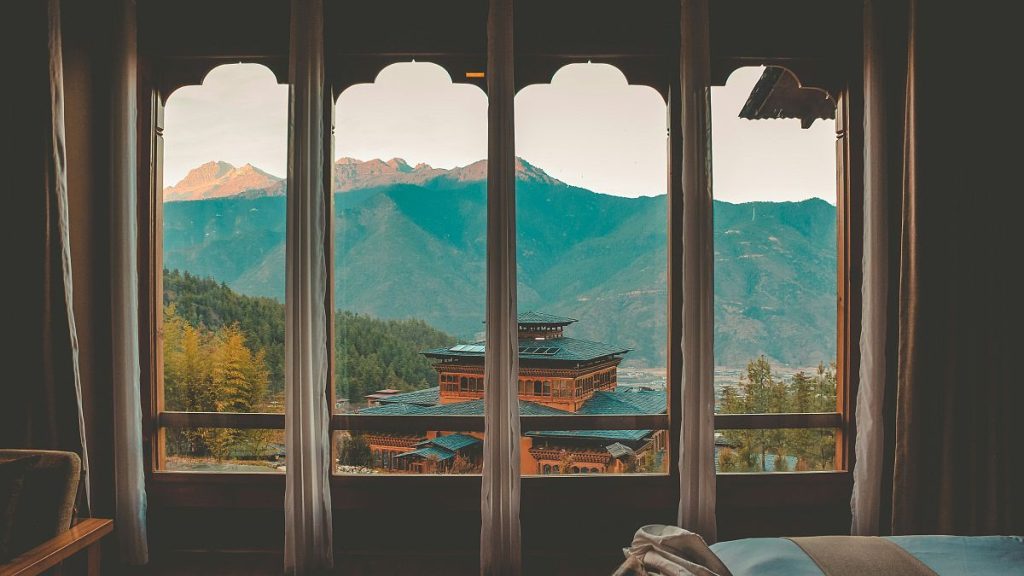Bhutan, nestled in the Himalayas, offers a unique sanctuary for those seeking respite from the relentless pace of modern life. Its commitment to Gross National Happiness over GDP underscores a national ethos prioritizing well-being and inner peace. This philosophy permeates every facet of Bhutanese life, from its pristine natural landscapes to its deeply rooted spiritual traditions, creating an environment conducive to rejuvenation and self-discovery. A journey to Bhutan is not merely a vacation, but an immersion in a culture that values mindfulness, compassion, and a harmonious relationship with nature.
Embarking on a trek through Bhutan’s majestic mountains is a transformative experience. The reopened Trans Bhutan Trail, a challenging 10-day journey, offers intrepid hikers an immersive exploration of the country’s diverse landscapes. For those seeking shorter yet equally rewarding hikes, the Nubtsonapata Trek in western Bhutan presents a captivating alternative. This route winds through vibrant rhododendron forests and fragrant juniper trees, ascending to breathtaking heights of over 4,350 meters. Reaching the sacred Nubtsonapata Lake on the third day provides a moment of profound tranquility and self-reflection, allowing hikers to connect with the natural world and their inner selves. The physical exertion combined with the awe-inspiring surroundings creates a unique opportunity for personal growth and renewal.
Beyond the challenging trails, Bhutanese wellness traditions offer a gentler path to rejuvenation. The ancient practice of hot stone baths, originating in Tibet, provides a deeply soothing and therapeutic experience. Submerging oneself in a wooden tub filled with medicinal herbs and heated river stones releases tension and promotes healing. The warmth of the water, infused with therapeutic minerals, penetrates deep into the muscles, easing aches and promoting relaxation. The enveloping steam and delicate herbal scents create a sensory experience that calms the mind and revitalizes the body. This traditional practice allows for a profound connection with ancient wisdom and the healing power of nature.
Spiritual exploration is an integral part of the Bhutanese experience. Visiting the country’s numerous temples, often perched high on mountain slopes, offers a profound opportunity for contemplation and reflection. The journey to these sacred sites often involves a meditative walk through serene forests, enhancing the spiritual experience. The iconic Tiger’s Nest Monastery, clinging precariously to a cliff face near Paro, exemplifies this journey. The three-hour climb through misty forests becomes a pilgrimage in itself, allowing time for introspection and connection with the natural world. Along the way, the rhythmic turning of giant prayer wheels by flowing streams adds another layer of spiritual significance.
Within the temples, intricate paintings of deities and Buddhas offer glimpses into Bhutanese Buddhist philosophy. These depictions, rich in symbolism and meaning, can resonate deeply with visitors regardless of their personal beliefs. The stories they tell, from wrathful deities conquering inner demons to the tale of four friends collaborating to nurture a tree, offer valuable life lessons. These narratives explore themes of overcoming adversity, fostering harmony, and the importance of community, providing a framework for personal growth and a deeper understanding of the interconnectedness of all things.
The Bhutanese approach to wellness is holistic, encompassing physical, mental, and spiritual well-being. The act of hiking becomes a form of moving meditation, allowing for self-reflection and connection with nature. The hot stone baths offer a deeply therapeutic experience, promoting physical relaxation and mental tranquility. Visiting temples and engaging with Buddhist philosophy provides a framework for spiritual growth and understanding. This integrated approach to wellness reflects the Bhutanese belief in the interconnectedness of mind, body, and spirit, creating a truly transformative travel experience that fosters lasting positive change. By embracing these practices, visitors can learn to slow down, appreciate the present moment, and cultivate a deeper appreciation for the natural world and the power of inner peace. A journey to Bhutan is not just a trip, but a pilgrimage towards a more mindful and fulfilling way of life.









